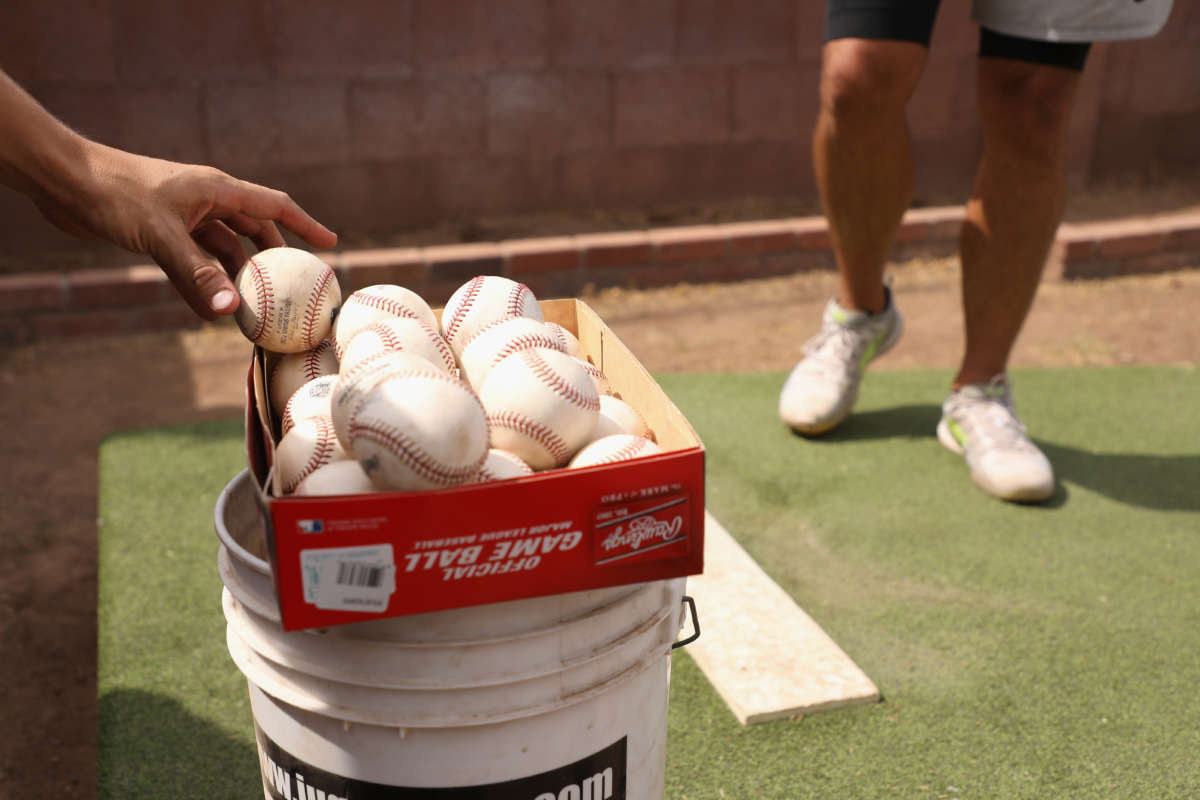Part of the Series
Despair and Disparity: The Uneven Burdens of COVID-19
Support justice-driven, accurate and transparent news — make a quick donation to Truthout today!
No Minor League season. Teams releasing players. Some team owners continue to pay Minor League players, while others convey “tough luck” sentiments and cut the players off. More than 40 Minor League teams to be eliminated; untold damage for local economies as a result. This is our new reality in the age of COVID-19.
Take, for instance, the Clinton LumberKings, a Minor League baseball team in Clinton, Iowa. Minor League baseball has been played in this town since 1937. With its working-class roots, Clinton’s Minor League team has become part of the town’s identity, providing affordable entertainment and a glimpse at stars before they become stars. After all, it is hundreds of miles from the nearest Major League Baseball (MLB) team. And it has also employed scores of workers for almost 100 years, from front office personnel to concession workers to ushers.
Now Clinton’s team, along with 41 others, are on a list of teams to be eliminated, and Minor League Baseball may never be played there again.
All of this happening in the context of the COVID-19/economic crises, with the future of the Minor Leagues — indeed, the future of baseball — up in the air.
There are three points to make here. First, just as with others in big business, Major League Baseball owners are taking advantage of this situation in order to bring about changes that they knew would have been met with steep resistance under other circumstances. Author Naomi Klein speaks of “disaster capitalism,” in which those of wealth and avarice take advantage of disasters in order to advance their agendas and/or make changes that would have been difficult to have made otherwise. We saw this in the aftermath of Hurricane Katrina in New Orleans and in Puerto Rico after Hurricane Maria. In today’s context, what is happening to Minor Leaguers and the MLB as a whole is representative of a design that the MLB owners had in place. Months prior to COVID-19, MLB owners were seriously discussing cutting the number of teams and cutting the number of draft rounds. There were mobilizations taking place against them, bad press for the owners, and then the plague hit.
The changes underway may result in Minor League jobs never returning. We may be looking at a dramatic and pro-corporate restructuring of baseball as an industry after both the pandemic and economic crises end, unless there is a loud and organized public response. This is just as true for workers outside of baseball — be they journalists, retail workers, meatpackers or public sector workers — as for those in baseball, including (but not limited to) the players.
Second, baseball may be a game, but what is unfolding for the Minor Leaguers is far from a game or a joke. The lives and careers of thousands of players and other workers in the industry are unraveling as the uncertainty of their situations grow in intensity. The pay for the highest-level Minor Leaguers — those at the Triple-A level, one step from the Major Leagues — was already outrageously low at $12,000 a year. The MLB requires them to conduct much work with no compensation (such as during spring training), purchase their own equipment, gain pitiful amounts of per diem while on the road, and share uncomfortably close quarters with other players due to a lack of resources to live on their own.
Third, this dismal situation mirrors that faced by millions of workers across the U.S. who have lost their jobs or, in other cases, been compelled to work under unhealthy conditions in the midst of this pandemic. Not only are we forced to protect ourselves through social distancing, but families are forced to give up work, in many cases, in order to take care of their children. Already stretched budgets — due to the polarization of wealth we have been seeing grow in this country over the last 40 years — have reached the snapping point. Minor Leaguers are not cresting this situation but are being swamped by this catastrophe.
Major League players are also facing a pounding by the MLB owners but, at least in their case, the Major Leaguers have the protection of a union, the Major League Baseball Players Association. In the case of the Minor Leagues, there is nothing, and the owners know that they can roll over the players and the communities where these Minor League teams are located with little risk unless something is done right now. That means organization and it means building coalitions. A step in that direction has been our founding of a new nonprofit, Advocates for Minor Leaguers which, while not a labor union, seeks to provide a voice for Minor Leaguers and to work to better their working conditions. This struggle is not about enriching Minor League players. It is about displaying the same concern that we have for all workers who are losing their jobs, their homes and their futures.
Now is the time for action, not pity.
Media that fights fascism
Truthout is funded almost entirely by readers — that’s why we can speak truth to power and cut against the mainstream narrative. But independent journalists at Truthout face mounting political repression under Trump.
We rely on your support to survive McCarthyist censorship. Please make a tax-deductible one-time or monthly donation.
